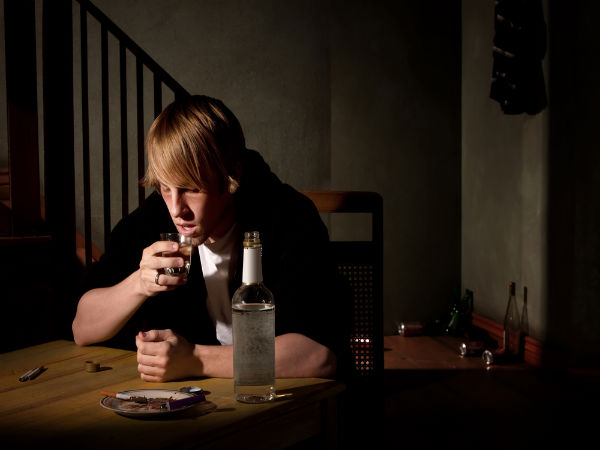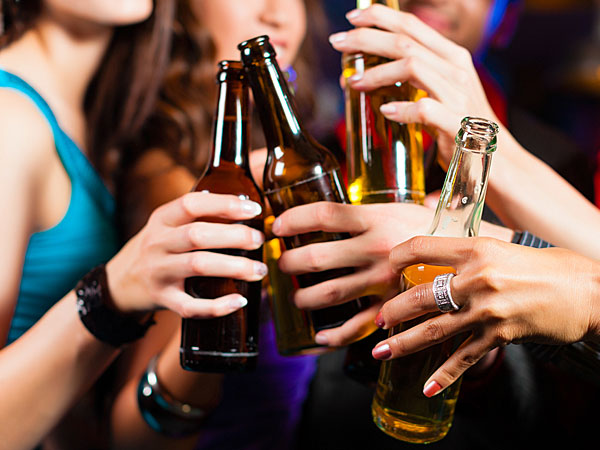Just In
- 2 hrs ago

- 6 hrs ago

- 10 hrs ago

- 10 hrs ago

Don't Miss
- Technology
 itel Super Guru 4G Phone With UPI Support Launched in India; Check Price, Specifications
itel Super Guru 4G Phone With UPI Support Launched in India; Check Price, Specifications - News
 More Than Rs 1000 Crore Spent By DMK, AIADMK To Win Election In Coimbatore: Annamalai
More Than Rs 1000 Crore Spent By DMK, AIADMK To Win Election In Coimbatore: Annamalai - Sports
 Why camera zoomed in on IPL 2024 coin toss after Sam Curran flipped it in front of Hardik Pandya in Mullanpur?
Why camera zoomed in on IPL 2024 coin toss after Sam Curran flipped it in front of Hardik Pandya in Mullanpur? - Finance
 1:2 Bonus, Rs 401/Sh Dividend; Tata's NBFC Stock Falls On Big Update Related To Dividend Recommendations
1:2 Bonus, Rs 401/Sh Dividend; Tata's NBFC Stock Falls On Big Update Related To Dividend Recommendations - Movies
 Pranali Rathod New Show: Yeh Rishta Kya Kehlata Hai Star Signs Next Project Of Jhanak Makers? DEETS
Pranali Rathod New Show: Yeh Rishta Kya Kehlata Hai Star Signs Next Project Of Jhanak Makers? DEETS - Automobiles
 India's Elections Trigger Airfare Surge in Tamil Nadu
India's Elections Trigger Airfare Surge in Tamil Nadu - Education
 Karnataka SSLC Result 2024 Soon, Know How to Check Through Website, SMS and Digilocker
Karnataka SSLC Result 2024 Soon, Know How to Check Through Website, SMS and Digilocker - Travel
Telangana's Waterfall: A Serene Escape Into Nature's Marvels
Alcohol Use Disorder (Alcoholism): Causes, Types, Symptoms & Treatment
If you are like most people, your love for alcohol probably started at a party with your friends. It was either a beer or something stronger in a tiny shot glass. And before you knew it, your compulsive desire to drink alcohol gradually increased, having a negative impact on your life. Yes! We are talking about alcohol use disorder, which is also called alcoholism.
According to the National Health Portal Of India, the prevalence of alcohol use in the rural and urban area varies from 23% to 74% in males and 24% to 48% in females.

Alcohol use disorder is the leading cause of death and disability globally. According to the World Health Organisation (WHO), 3.3 million deaths occur globally every year. Alcoholism harms or damages your physical and mental health.
What Is Alcoholism (Alcohol Use Disorder)?
The National Institute on Alcohol Abuse and Alcoholism (NIAAA) describes alcohol use disorder as a problem with drinking that becomes severe. It means your uncontrollable urge for drinking, being preoccupied with alcohol, do not know when or how to stop drinking and having withdrawal symptoms when you decrease or stop drinking [1] .
Unhealthy alcohol use puts you at a health or safety risk.
Causes Of Alcoholism (Alcohol Use Disorder)
Genetics, environmental, psychological and social factors have an impact on your alcohol drinking. Younger adults develop alcohol dependency at a younger age [2] , others have other medical diseases such as anxiety, depression, a bipolar disorder that make them depend on alcohol. A history of trauma, physical, sexual and verbal abuse can also cause alcohol dependency. Exposure to specific life events and situations can make a person dependent on alcohol.

Symptoms Of Alcoholism (Alcohol Use Disorder)
- Unable to limit the amount of alcohol consumption
- Unsuccessful attempts of trying to cut down on drinking alcohol
- Drinking alone or in secret
- A strong urge to drink occasionally
- Spending a lot of time drinking
- Failing to meet your work, home or school requirements
- Experiencing withdrawal symptoms after you stop drinking
- Continuing to drink alcohol even though it's causing you physical, social or interpersonal problems
- Drinking alcohol in certain situations like driving or swimming
- Giving up your hobbies
- Drinking a lot to feel good
Alcohol use disorder includes periods of alcohol intoxication and alcohol withdrawal.
- Alcohol intoxication - It occurs when an excess amount of alcohol increases in your bloodstream. This causes behavioural and mental changes which include inappropriate behaviour, impaired judgement, unstable moods, impaired attention and slurred speech [4] .
- Alcohol withdrawal - It occurs when you have stopped drinking alcohol after heavy and prolonged alcohol use. Alcohol withdrawal symptoms include sweating, sleeping problems, nausea, hallucinations, restlessness, anxiety, and rapid heartbeat [5] .
Types Of Alcoholism (Alcohol Use Disorder) Based On Symptoms
A 2018 research study showed there are 5 types of alcohol use disorder that vary with age from 18 to 64 [3] .
- Alcohol-induced injury - Around 25% of the participants fall under this category. It involves engaging in risky behaviour that may lead to injury.
- Highly problematic, low perceived life interference - Around 21% of the participants said that drinking alcohol did not have any adverse effect in their day-to-day lives.
- The adverse effects only - 34% of the participants reported alcohol withdrawal symptoms.
- Difficulty cutting back - 13% of the participants fall under this category who struggle or are unable to cut back on their drinking problem.
- Highly problematic - 7% of the participants had every symptom of alcohol use disorder.
Risk Factors Of Alcoholism (Alcohol Use Disorder)
- Family history
- Drinking on a regular basis
- Drinking at an early age
- History of trauma
- Social and cultural factors
- Having bariatric surgery
- Mental health problems
- Media and advertising
Complications Of Alcoholism (Alcohol Use Disorder)
- Over time, regular alcohol consumption alters the balance of gamma-aminobutyric acid (GABA) in the brain which controls impulsiveness, and glutamate which stimulates the nervous system.
- Alcohol use puts your safety at risk which includes road accidents, accidental drowning, committing violent crimes, problems with substance abuse and increased risk of suicide.
- Alcohol use causes health problems such as liver disease, heart problems, digestive problems, diabetes, eye problems, erectile dysfunction and menstruation issues, bone damage, birth defects, neurological complications, increased risk of cancer and weakened immune system.
Diagnosis Of Alcoholism (Alcohol Use Disorder) [6]
During the past 12 months, the person has to meet at least three of the following criteria:
- Alcohol intolerance - The individual requires a large quantity of alcohol to feel intoxicated. Liver damage and central nervous system damage reduce tolerance levels.
- Withdrawal symptoms - After cutting back on alcohol, the individual experiences withdrawal symptoms like anxiety, tremors, sweating, etc.
- Drinking excess alcohol over a long period of time than they intended.
- Unsuccessful attempts to cut down alcohol.
- The person spends a lot of time in recovering from alcohol.
- The person avoids recreational and social activities.
- The individual continues to drink alcohol, even though it is harming his/her health.
Another way of diagnosis is carbohydrate-deficient transferrin (CDT), a blood test that detects heavy alcohol consumption.
Treatment Of Alcoholism (Alcohol Use Disorder)
- Oral medications - Medicines like disulfiram, can prevent you from drinking and naltrexone blocks the feel-good causes of drinking and prevents the urge to drink. Acamprosate, another medicine may help you combat alcohol cravings after you stop drinking completely.
- Detoxification - The frequently used detox medication like chlordiazepoxide, a benzodiazepine medication may help prevent alcohol withdrawal symptoms and the treatment usually lasts from 4 to 7 days.
- Counselling - Cognitive behavioural therapy (CBT) is commonly used to treat alcohol dependency.
- Learning skills - This involves goal setting, behaviour change techniques, use of self-help manuals and counselling.
- Psychotherapy - If you have any mental health problems, you may need talk therapy.
- Support groups - Support groups can help a person recover from alcohol use disorder, manage relapses and cope with lifestyle changes.
Prevention Of Alcoholism (Alcohol Use Disorder)
- Develop healthy habits like going to sleep at the right time, regular physical activity, managing stress and eating healthy foods.
- Try doing yoga and meditation.
How Much Alcohol Is Safe To Drink?
According to the National Institute on Alcohol Abuse and Alcoholism defines one standard drink as any one of these:
- 355 millilitres of regular beer (about 5% alcohol)
- 237 to 266 millilitres of malt liquor (about 7% alcohol)
- 148 millilitres of unfortified wine (about 12% alcohol)
- 44 millilitres of hard liquor (about 40% alcohol)
- [1] Rathod, S. D., Nadkarni, A., Bhana, A., & Shidhaye, R. (2015). Epidemiological features of alcohol use in rural India: a population-based cross-sectional study.BMJ open,5(12), e009802.
- [2] Hingson, R. W., Heeren, T., & Winter, M. R. (2006). Age at drinking onset and alcohol dependence: age at onset, duration, and severity.Archives of pediatrics & adolescent medicine,160(7), 739-746.
- [3] Linden-Carmichael, A. N., Dziak, J. J., & Lanza, S. T. (2018). Dynamic Features of Problematic Drinking: Alcohol Use Disorder Latent Classes Across Ages 18–64.Alcohol and alcoholism,54(1), 97-103.
- [4] Peterson, J. B., Rothfleisch, J., Zelazo, P. D., & Pihl, R. O. (1990). Acute alcohol intoxication and cognitive functioning.Journal of studies on alcohol,51(2), 114-122.
- [5] Sachdeva, A., Choudhary, M., & Chandra, M. (2015). Alcohol Withdrawal Syndrome: Benzodiazepines and Beyond.Journal of clinical and diagnostic research : JCDR,9(9), VE01–VE07.
- [6] Kranzler, H. R., & Soyka, M. (2018). Diagnosis and pharmacotherapy of alcohol use disorder: a review.Jama,320(8), 815-824.
-
 disorders cureIs Alcohol Withdrawal Syndrome A Serious Condition? Causes, Symptoms, Risk Factors And Treatments
disorders cureIs Alcohol Withdrawal Syndrome A Serious Condition? Causes, Symptoms, Risk Factors And Treatments -
 wellnessHow Does Alcohol Affect Your Sex Life?
wellnessHow Does Alcohol Affect Your Sex Life? -
 wellnessDo You Have A Drinking Problem?
wellnessDo You Have A Drinking Problem? -
 insyncThis Rich Indian King From Gujarat Used To Beg In His Own Court, Know The Reason Behind This Strange Habit
insyncThis Rich Indian King From Gujarat Used To Beg In His Own Court, Know The Reason Behind This Strange Habit -
 healthAre You Emotionally Immature? 5 Signs You Are And Whether You Need A Therapist
healthAre You Emotionally Immature? 5 Signs You Are And Whether You Need A Therapist -
 insync8 Bizzare Drinking Traditions From Around the World Are Packed With Eccentricity
insync8 Bizzare Drinking Traditions From Around the World Are Packed With Eccentricity -
 wellnessInternational Gin And Tonic Day 2023: Interesting Benefits Of Gin That Will Definitely Surprise You!
wellnessInternational Gin And Tonic Day 2023: Interesting Benefits Of Gin That Will Definitely Surprise You! -
 healthHow to Drink Alcohol in Moderation
healthHow to Drink Alcohol in Moderation -
 insyncInternational Beer Day 2023: Fun Facts About Beer, Its History And All About Indian Beer
insyncInternational Beer Day 2023: Fun Facts About Beer, Its History And All About Indian Beer -
 beautyNon-Alcoholic Wine: Your Key To Age-Defying Skin
beautyNon-Alcoholic Wine: Your Key To Age-Defying Skin -
 healthMonsoon Illness Prevention: Health Department Advises Everyone To Take Weekly ‘Dry Day’
healthMonsoon Illness Prevention: Health Department Advises Everyone To Take Weekly ‘Dry Day’ -
 healthRegular Alcohol Consumption Reduces Your Five Main Functions: Which Are They?
healthRegular Alcohol Consumption Reduces Your Five Main Functions: Which Are They?


 Click it and Unblock the Notifications
Click it and Unblock the Notifications



